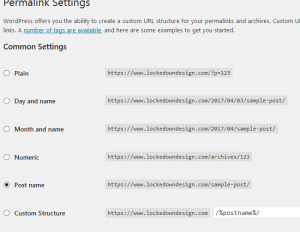URL's & SEO
Wat zijn goede URL's qua SEO?
Algemeen
Voornaamste bron: https://www.lockedownseo.com/seo-friendly-urls/ - Heel goed artikel!
Vermijd ruis
Dus geen paginanummers of datums in URL's
Korter is beter
[1]:
The length of your URL isn’t really a factor in this. We do recommend to keep your URLs as short as possible. It’s not that Google doesn’t like lengthy URLs, but shorter URLs are most probably more focused. Keep in mind that if you use breadcrumbs on your site, as we do, these could appear instead of the full URL:
Ik denk dat er nog een reden is om URL's kort te houden: Dat maakt ze gemakkelijker om te delen, bv. op facebook of WhatsApp. Tegenvoorbeeld: De vreselijk lange en onaantrekkelijke URL's van Notion.
Focus keyphrase
[2]:
This is probably a no-brainer, but for the record: your keyphrase should be in the slug. It has to make clear what your page is about immediately. The SEO analysis in the Yoast plugin will show this message if your keyphrase isn’t in the slug.
- Ik vind de Yoast Focus keyphrase verrekte handig als hulpmiddel om te bepalen wat het onderwerp van een pagina is
- Het lijkt me, dat de focus keyphrase terug moet komen in de URL, het liefst aan het begin van de URL en in dezelfde volgorde. Een uitzondering hierop is wellicht als het eerste woord van de keyphrase ook al in de URL zit - Tenzij dit conflicteert met andere pagina's op de site (is wat ver gezocht) → Waarschijnlijk wel die term herhalen. Anders is het niet duidelijk voor bezoekers!
Keyphrase volledig in slug? - Voorbeeld
- Site: widgets.com.
- Deze site heeft een landing page voor widgets van het merk Bakaro
- Zou de slug van die landing page dan
bakaromoeten zijn, ofwidgets-bakaro? - In het eerste geval is de volledige URL
widgets.com/bakaro. In het tweede gevalwidgets.com/widgets-bakaro - Het tweede geval is inderdaad duidelijker. Maar ook wat overkill. De eerste optie is korter en krachtiger.
Conclusie: Alleen bakaro lijkt me beter.
Vermijd 'function words'
Vermijd als het even kan, woorden zoals het, de, in, voor, before & after, werkwoorden etc. Yoast noemt dit function words.
[3]:
Search engines scan your content to find out what it is about. That’s why you optimize it for certain search terms. Search terms usually carry intrinsic meaning. But function words like the or and, but also words like absolutely or things don’t carry meaning by themselves. Therefore it wouldn’t make much sense to optimize your content for function words only, as these words won’t help search engines figure out the topic of your text. If all the words in your keyphrase are function words, Yoast SEO will tell you your keyphrase needs improvement!
Soms zijn deze woorden noodzakelijk, bv. om onderscheid te maken met andere URL's, of omdat de URL anders een totaal verkeerde betekenis krijg. Maar meestal kun je deze woorden weglaten. Werkwoorden zijn daar ook voorbeelden van.
Leesbaar
Bv. URL's die sterk overeen komen met de titel van de betreffende pagina.
Vermijd parameters en hashes
Zie elders voor details.
Vermijd bijzondere tekens
- Geen emojicons
- Hanteer de gebruikelijke substituties voor diacritische tekens en non-ASCII-tekens → Slug (MySQL)
Streepjes ipv. liggende streepjes
[4]:
Don’t use underscores, as these connect the words and make them into one. Dashes are preferred.
(ik snap niet wat hier bedoeld wordt).
Vermijd keyword-stuffing
Alleen kleine letters
Eindelijk een antwoord op de vraag of hoofdletters ok zijn [5]:
Try to use lowercase letters only in your slug. That’s because, in some cases, you can create duplicate content by mixing uppercase and lowercase letters.
Vraagtekens in URL's
Is het een probleem qua indexering, als een URL een vraagteken of parameter bevat?
Voorbeeld: Worden URL's zoals https://koolborstels.shop/?filter_merk=aeg niet of slechter geïndexeerd dan een URL zoals https://koolborstels.shop/aeg?
Ik kan me goed voorstellen dat dat het geval is: Er is veel te zeggen voor de interpretatie dat de eerste URL alleen https://koolborstels.shop betreft, en de rest een parameter is - Wordt vervolgd!
Antwoorden
[6] (2012):
- Pairing parameter names with values adds extra words. This may dilute the SEO value derived from keywords within the URLs.
- Avoid the use of URL parameters, if possible, as they can create issues with tracking and duplicate content. If parameters need to be used (UTM codes, e.g.), use them sparingly.
- Configure URL parameters in webmaster tools and direct search engines to ignore any parameters that cause duplicate content.
[7]:
Whenever possible, avoid using parameters (?=some+stuff+goes+here) or hashes (#) in your URLs.
Google prefers to index pages without parameters over ones with parameters. The easier you can make it for Google to crawl your page, the better.
Some sites use hashes, or hash bangs (#!) in pages to reveal extra information when a link or button is clicked, often using JavaScript or Ajax. My advice is make any content you want indexed visible without any parameters or in-page links.
If your content is hidden behind a pop-up or modal, and you have to click a hashed link to reveal it, don’t expect that content to be indexed. However, Google will index tabbed content (like on a WooCommerce product page).
An examples of content hidden behind parameters would be content that is dynamically generated after making selections on a drop-down menu, without reloading the page. Googlebot does not index content pulled in from a database via Ajax if it is dependent on making selections from a dropdown.
Make sure the page content you want indexed is on the page on the initial page loading.
Conclusies
Niet doen, als het om min-of-meer statische pagina's gaat, zoals in het voorbeeld aan het begin van dit hoofdstuk.
Bronnen
- https://moz.com/learn/seo/url
- https://searchengineland.com/seo-friendly-url-syntax-practices-134218 - Artikel uit 2012
- https://www.lockedownseo.com/seo-friendly-urls/ - Goed inleidend artikel over URL's & SEO
- https://yoast.com/slug
- https://yoast.com/seo-friendly-urls/
- https://yoast.com/features/function-words/
